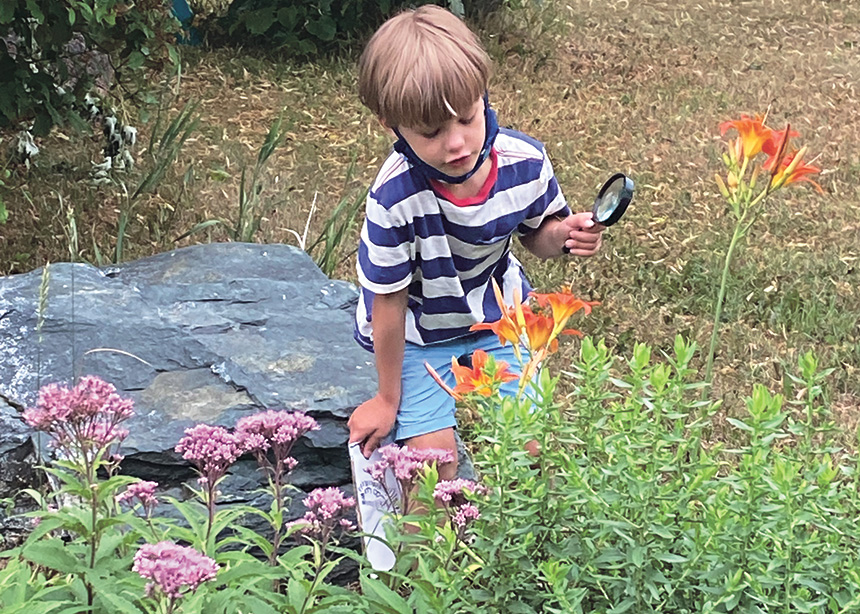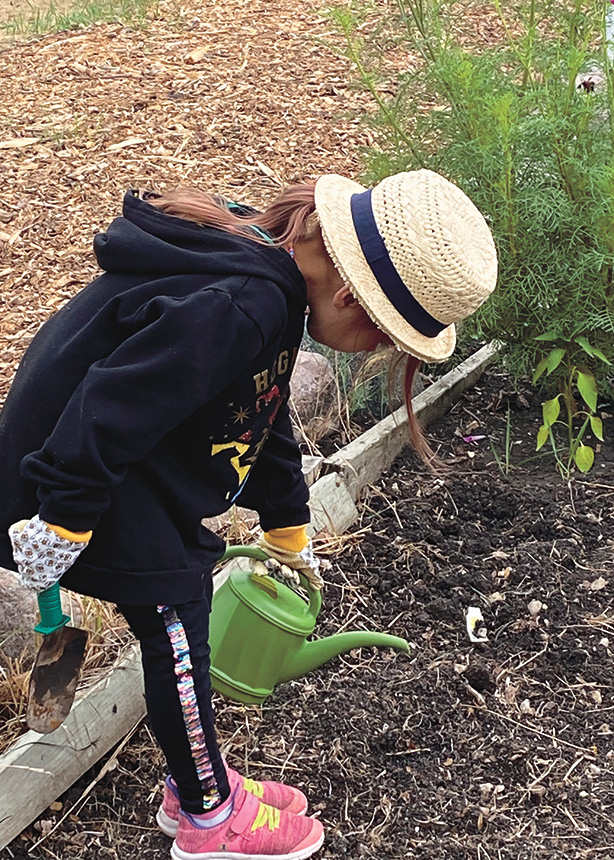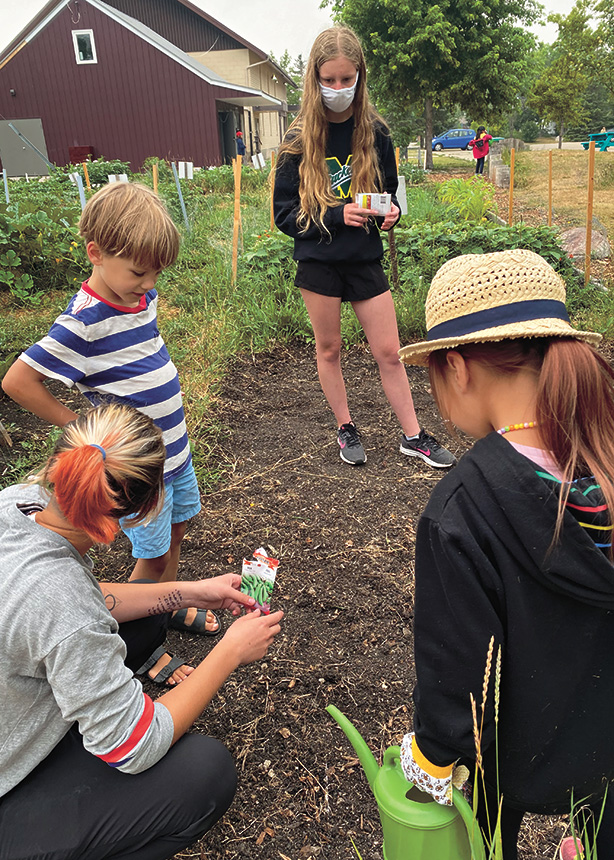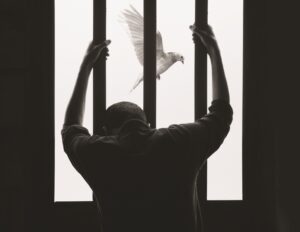Many children today live in a nature deficit. As screens constantly command their attention, parents tighten their protective grip as dangers outside seem to increase, and a multi-year pandemic continues to spread. Children are spending increasing amounts of time inside at home.
A Rocha Manitoba, a Christian environmental organization, and Jubilee Mennonite Church, a Winnipeg congregation, are working together to change that. They run Earthkeepers Kids Club, a weekly after-school drop-in program focused on connecting children with creation.
Every Tuesday, children aged 5 to12 gather on the church’s grounds to identify plants, search for animals, build fires and simply spend time outside.
“Nature is profoundly healing in a lot of ways and very hopeful,” says Kari Miller, A Rocha Manitoba’s environmental education coordinator. The organization and church jointly hired her to plan the programming and lead the group, which started in last September.
Anna Marie Geddert, community ministry pastor at Jubilee Mennonite, emphasizes how important it is to get children outside because of “the benefits of interacting with nature in terms of their physical, emotional, intellectual and spiritual development.” It is also crucial in the current climate crisis: “These are our future generations. They can make a difference! They can let people know why we need to take care of the earth.”
Miller and two other leaders facilitate interactive learning for the children. They have dug through compost, talking about life cycles. They have run around the yard hunting for hidden names identifying the surrounding trees. After they learned to build fires, they roasted marshmallows. They made natural dyes and painted the snow and crafted bird feeders out of pinecones and seeds. Miller read them stories, and when COVID-19 raged and temperatures plummeted, she put together art kits and dropped them off at the children’s houses. “I love seeing kids learn to cultivate curiosity and learn how to ask questions,” she says.
Over the years, Jubilee Mennonite has expanded its outdoor space; the congregation has enlarged its community garden, developed a sand pit, planted trees and set up a fire pit. For a while, some children from the surrounding area would vandalize the yard, breaking branches while climbing trees or throwing around tomatoes.
“You can’t love nature if you don’t experience nature,” Geddert says of the youthful vandalism. “If children have never participated in gardening or haven’t had trees around them, [they need] to learn how to love it and then learn how to take care of it,” she says.
Many kids who come to Earthkeepers and live in the area surrounding Jubilee Mennonite are from families who don’t have cars or a high income, which limits their opportunities to experience nature. So the congregation started bringing summer camp to its community.
A Rocha runs week-long day camps in locations across the city throughout the summer, so Geddert arranged for A Rocha to host one at Jubilee. When she saw what a wonderful impact the day camp had, she wanted it to continue throughout the year. Thus Earthkeepers was born—the first time A Rocha Manitoba has run regular children’s programming throughout the year.
The children who attend Earthkeepers come from many different religious and cultural contexts, so the leaders begin from a basic premise that spans differences.
“It all starts with the whole idea that God is the creator. . . . If God created the earth, it’s our job to care for the earth,” Geddert says.
Miller adds: “I also think that implicit in nature is a sense of God, a sense of the sacred and divine who created it.”
By spending time in creation, children dig into big ideas like death, resiliency and perspective.
“Nature is a place that has an embodied story to it. This story is one of resiliency, of new birth and new life that’s cyclical with death. . . . When these kids can be in nature they can see that,” Miller says. “Every day the sun does come up despite how hard the last day was or despite how cold this winter is, all of a sudden there’s buds on the trees again.”
Miller has seen the children’s knowledge and skills around navigating weather and fire-building improve, but the biggest change has been in the relationships created between leaders and children. She knows the children’s families and has been to their houses. She has spent time with children learning what a joke is and how to tell one, and with others who are learning how to process emotions in healthy ways as they go through difficult experiences.
Earthkeepers will wrap up at the end of June when children finish school, but A Rocha’s day camp will once again be held at Jubilee in the summer, and Earthkeepers will restart in the fall, pending funding.
Miller plans to grow a garden with the children in Jubilee’s community garden this spring. As they return to more outdoor activities, she is excited to see how their comfort and familiarity with the outdoors has changed.
This article appears in the May 2, 2022 print issue, with the headline “‘All of a sudden there’s buds on the trees.’” Do you have a story idea about Mennonites in Manitoba? Send it to Nicolien Klassen-Wiebe at mb@canadianmennonite.org.










Leave a Reply
You must be logged in to post a comment.